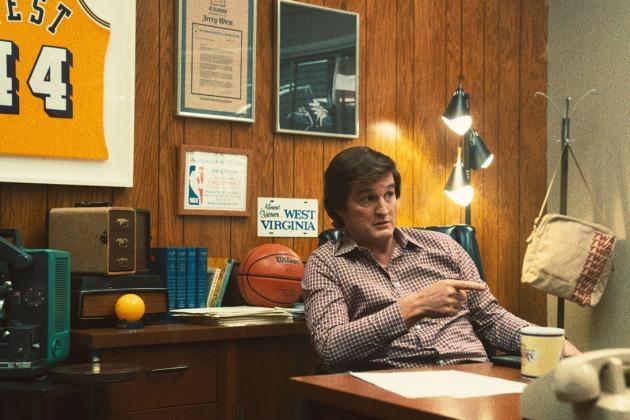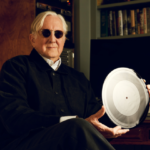
Winning Time debuted in early March with a disclaimer splashed across the screen: The HBO series is “a dramatization of certain facts and events.” It was supposed to provide a bit of cover.
Seven weeks later, former Los Angeles Lakers coach and general manager Jerry West, depicted in the series by actor Jason Clarke, fired off a legal letter to Warner Bros. Discovery, HBO and series producer Adam McKay demanding a retraction, an apology and unspecified damages for the “false and defamatory portrayal.” West argued, via his attorney, that those who’ve watched his portrayal in Winning Time, which was adapted from a best-selling book by Jeff Pearlman that chronicles the rise of the 1980s Lakers, now believe him to be an “out-of-control, intoxicated rage-aholic.”
More from The Hollywood Reporter
HBO has stayed mum until now. In a statement provided exclusively to The Hollywood Reporter, the network had this to say: “HBO has a long history of producing compelling content drawn from actual facts and events that are fictionalized in part for dramatic purposes. Winning Time is not a documentary and has not been presented as such. However, the series and its depictions are based on extensive factual research and reliable sourcing, and HBO stands resolutely behind our talented creators and cast who have brought a dramatization of this epic chapter in basketball history to the screen.”
The series, created by Max Borenstein and Jim Hecht, has been embroiled in offscreen drama for years, dating back to the recasting of then-owner Jerry Buss and the subsequent demise of one of Hollywood’s most fruitful friendships. And long before West’s attorney hit send on his laundry list of complaints, Magic Johnson (played by Quincy Isaiah) and Kareem Abdul-Jabbar (Solomon Hughes), the two Showtime-era players at Winning Time‘s center, were busy blasting the show. In fact, Abdul-Jabbar recently devoted an entire blog post to the topic. The Lakers and the league are said to detest the series’ existence, too, with NBA lawyers already reaching out to HBO about the use of trademarks and logos well ahead of the show’s premiere.
Still, it’s the depiction of West that seems to be proving most controversial in the nearly two months since Winning Time debuted. West’s own letter joins a collection of opinion pieces, published in outlets including THR, that are critical of his portrayal. Among them: “HBO’s Winning Time gets some things about Showtime era right — but not Jerry West,” by longtime Los Angeles Times sports writer Bill Plaschke. Like others, Plaschke took issue with a few memorable scenes, including one from the show’s pilot where West is seen screaming profanities and breaking a golf club over his knee during a game of golf with Jerry Buss (played by John C. Reilly) and others. The trouble with it, Plaschke argued: “He would never break clubs in a temper tantrum on a golf course — in public he was always, well, Mr. Clutch.”
On his Substack, Abdul-Jabbar came to West’s defense as well. “It’s a shame the way they treat Jerry West, who has openly discussed his struggle with mental health, especially depression,” he wrote. “Instead of exploring his issues with compassion as a way to better understand the man, they turn him into a Wile E. Coyote cartoon to be laughed at. He never broke golf clubs, he didn’t throw his trophy through the window. Sure, those actions make dramatic moments, but they reek of facile exploitation of the man rather than exploration of character.”
To be sure, this isn’t exactly new ground for HBO or McKay. In an interview for THR‘s Winning Time cover story earlier this year, HBO programming president Casey Bloys noted how much experience his team had with projects that drew on real-world people and events, rattling off examples like Game Change, Recount, Chernobyl and Paterno. And McKay, who’s no stranger to navigating controversial terrain either, having made projects like Vice and Q: Into the Storm (also with HBO), was similarly nonplussed: “We know the drill at this point,” he said at the time. “You get the fact-checkers, you check with the lawyers, and there are very clear parameters: You’re never going to create character-defining moments; it’s always going to be within the realm of the true story.”
In recent months, McKay and the writers have used their many opportunities with the press to discuss their extensive research process, regularly referencing Pearlman’s book, along with the many biographies and autobiographies at their disposal. Among them was surely West’s, titled West by West: My Charmed, Tormented Life, in which he details his upbringing and his long battle with depression. Clarke has said he has portions of the book underlined. And on page 68, for instance, West writes: “I have broken a lot of clubs in my life. On purpose. There was a place not far from Bel-Air Country Club that repaired them, and I would often put a broken club (or two) in front of their door early in the morning, well before they opened, with no note. No note was necessary, because they knew the clubs were mine. I have even thrown some over the fence of Bel-Air. If you don’t believe me, ask Pat Riley. He witnessed it.”
Now, whether or not West will be successful if he chooses to sue for defamation is a hotly debated topic that’s already spawned several think pieces; meanwhile, the show’s audience is continuing to grow. In fact, Winning Time viewership is up 45 percent from the March 6 premiere; and that first episode, which included the infamous West scene on the golf course, has now reached 7.2 million viewers. With two episodes left in season one, the writing staff is hard at work on season two.
Best of The Hollywood Reporter




